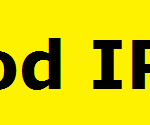1.What is an IPO?
When an unlisted company makes either a fresh issue of securities or offers its existing securities for sale or both for the first time to the public, it is called an IPO (Initial Public Offer).
2.What is an offer document?
“Offer document” is a document which contains all the relevant information about the company, promoters, project, financial details, objective of raising money, terms of the issue etc. and is used for inviting subscription to the issue being made by the issuer.
3.What is IPO grading?
IPO grading is the grade assigned by a Credit Rating Agency, registered with SEBI, to the initial public offering (IPO) of equity shares . The grade represents a relative assessment of the fundamentals of the IPO in relation to the other listed equity securities.
4.What is a Minimum lot?
Minimum lot is the pre-determined number of shares which have to be applied for by an investor. It is different for each issue. There is a minimum lot size which is
pre-decided by the company and mentioned in the application form.
5.Can I cancel my Bid for online IPO order ?
Yes, you can cancel your bid for online order anytime before Modification/ Revision / Cancellation cut-off time.
6.What are the different types of investor categories?
Investors are broadly classified under following categories:
- Retail individual Investor (RIIs)
- Non-Institutional Investors (NIIs)
- Qualified Institutional Buyers (QIBs)
7.What is cut-off price?
Retail investors can bid at any price within the price band or can bid at cut-off. “Cut-off price” means the investor is ready to pay whatever price is decided by the company at the end of the book building process. While making the application at Cut off, the investor is required to pay the amount at the highest price band. The excess amount, in case the price discovered is lower, is refunded. Cut-off option can be exercised only by Retail Investors and Employee Categories.
8.What is a Price band?
Price band is a band of price within which investors can bid. The spread between the floor and the cap of the price band shall not be more than 20%. The price band can be revised. If revised, the bidding period shall be extended for a further period of three days, subject to the total bidding period not exceeding thirteen days.
9.What is the difference between Fixed Price Issue and Book Built Issue?
As the name suggests, a “Fixed Price Issue” is an initial public offering (IPO) where the issuer at the outset decides the issue price & mentions it in the offer document. It is a process of price discovery. In a “Book Built Issue” the price of an issue is discovered on the basis of demand received from the prospective investors at various price levels.
10.Is it compulsory to have a Demat Account while applying an IPO?
Yes it is compulsory to have a Demat Account for applying in IPO.
11.Why is PAN Compulsory?
As per SEBI guidelines, all applicants are required to provide their PAN while applying for an Issue. Application without PAN or with invalid PAN is rejected. Investors are requested to ensure that their DP account is updated with proper PAN details.
12.How can I know about the demand for an issue at any point of time?
The status of bidding in a book built issue is available on the website of BSE/NSE.
13.Where can I check the Refunds for non-allotted shares / Cancelled order / lower revised orders?
Refunds are directly credited by IPO registrar to your Bank account linked to your Demat account on the date of allotment, provided the MICR number of your bank account is updated in your Demat account.
List of Multibagger Stocks: (Click on the Company Name)
For Complete List of Multibagger Stocks Click Here.
Knowledge Corner: (Click on the Link)



